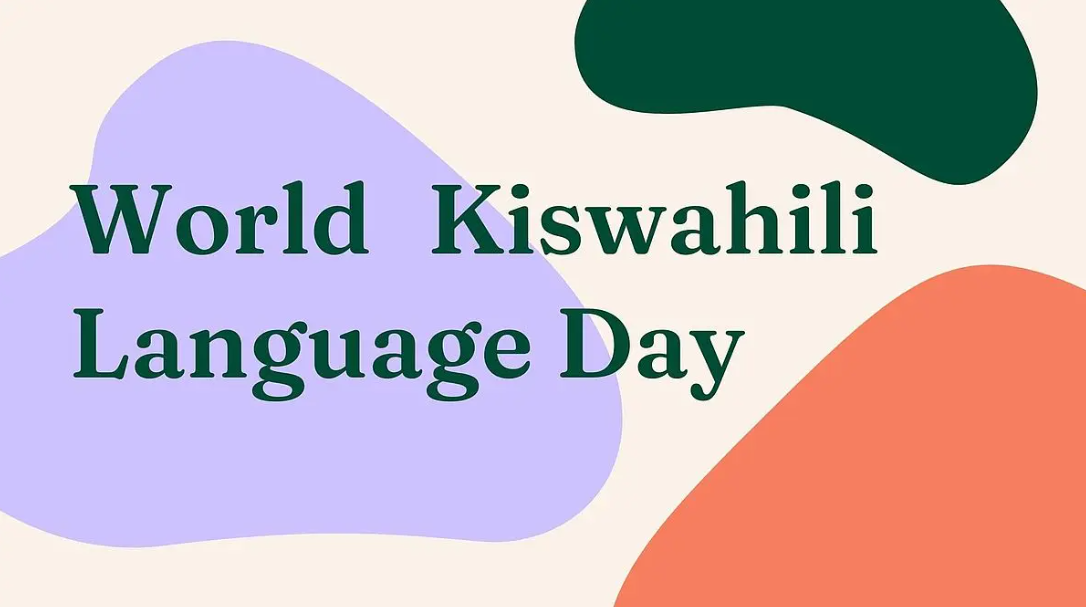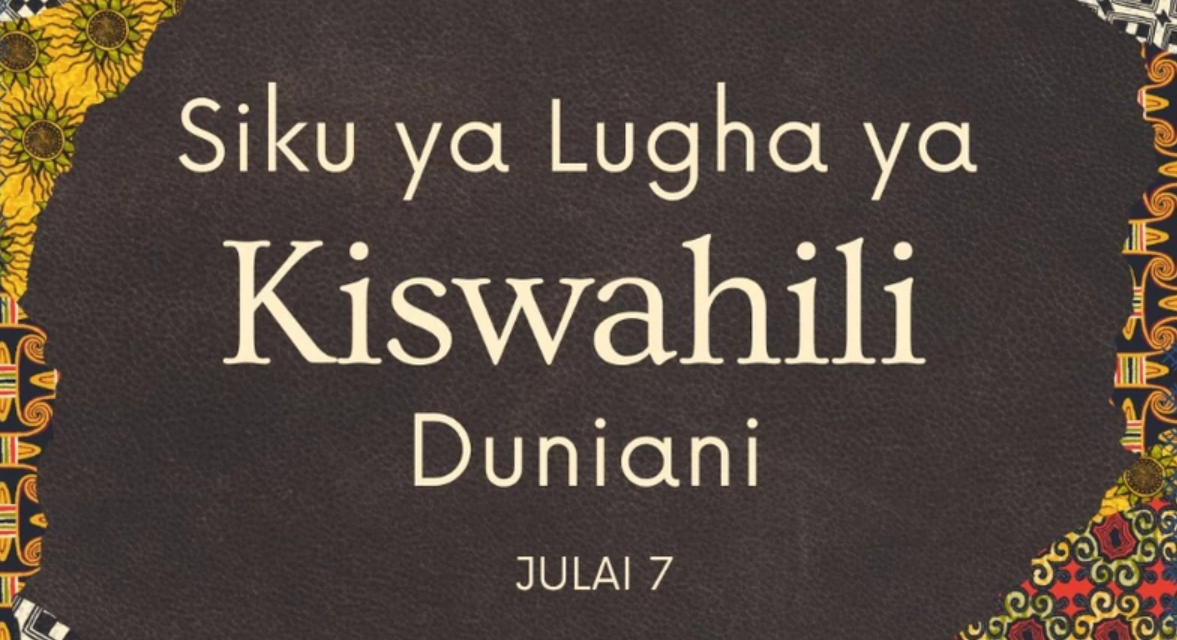Arts & Culture
Embracing Kiswahili: The Global Celebration of Kiswahili Day on July 7

Embracing Kiswahili: On July 7th, the world comes together to celebrate the rich and vibrant Kiswahili language, recognizing its cultural significance and widespread usage across East Africa and beyond.
Kiswahili, also known as Swahili, is a language that has transcended boundaries, fostering unity, and serving as a symbol of pan-African identity.
As the globe commemorates Kiswahili Day, it is an opportunity to honor this remarkable language’s contributions and appreciate its profound impact on various aspects of society.
Embracing Kiswahili: The Origins of Kiswahili Day
Kiswahili Day, also known as Siku ya Kiswahili, originated in Tanzania, the East African nation where Kiswahili holds the status of the national language.
The day was first observed in 2014, following a declaration by the East African Community (EAC), a regional intergovernmental organization comprising Tanzania, Kenya, Uganda, Rwanda, Burundi, and South Sudan.
Since then, the celebration has gained momentum and recognition beyond East Africa, drawing attention from Kiswahili enthusiasts and linguists worldwide.
Preserving Cultural Heritage
Kiswahili is a language that carries a rich historical and cultural legacy. Originating from the coastal regions of East Africa, it has been shaped by diverse influences over centuries, including Arabic, Persian, Bantu, and European languages.
Celebrating Kiswahili Day provides an opportunity to acknowledge and preserve this cultural heritage, recognizing the language’s role in shaping East African history and identity.
Promoting Linguistic Diversity
Kiswahili’s influence extends far beyond its East African roots. Today, it is one of the most widely spoken African languages, with approximately 100 million speakers across East Africa and beyond.
The language’s global reach has been bolstered by its adoption as an official language by the African Union and the EAC, promoting intercultural communication and integration across the continent.
Kiswahili Day serves as a platform to celebrate the linguistic diversity it represents, fostering cultural exchange and appreciation.
Embracing Kiswahili: Gateway to Regional Integration
Kiswahili has played a significant role in fostering regional integration and cooperation within East Africa. Through its widespread usage in trade, education, and media, Kiswahili has acted as a bridge that connects communities and promotes understanding among different ethnic groups and nations.
Kiswahili Day provides an opportunity to recognize the language’s ability to break down barriers and strengthen regional unity, reinforcing the vision of a harmonious East Africa.
A Language of Literature and Arts
Methali ipi wajua inayoanza na neno PENYE? Penye____________.
Kamilisha methali! #NRGTransit @NRGRadioKenya #KiswahiliKitukuzwe #KiswahiliLanguageDay pic.twitter.com/d5AJlhBseF
— Mwalimu Rachel (Abena Adiepena) (@MwalimuRachel) July 7, 2023
Kiswahili is not just a means of communication; it is also a language of literature, music, and art. Celebrating Kiswahili Day acknowledges the vast wealth of Kiswahili literature, from ancient Swahili poetry to contemporary novels and plays.
The language’s musical influence can be heard in popular genres such as taarab, bongo flava, and Afro-fusion. Kiswahili’s artistic contributions are celebrated on this day, showcasing the richness and creativity that it brings to the global cultural landscape.
Preserving and Expanding Kiswahili
While Kiswahili continues to thrive, it also faces challenges in the ever-changing world. As Kiswahili Day is celebrated, efforts must be made to preserve the language’s authenticity and ensure its continued growth.
Governments, educational institutions, and communities must invest in Kiswahili education, promote literacy, and support the development of Kiswahili as a language of technology and innovation. By doing so, we can secure Kiswahili’s future and its contribution to our global linguistic tapestry.
Embracing Kiswahili: Why July 7?
On July 7, 1954, Mwalimu Julius Kambarage Nyerere, the first President of the United Republic of Tanzania, and the Tanganyika African National Union (TANU) adopted Kiswahili as a unifying language for independence struggles.
Theme of Kiswahili Language Day
The Theme of 2023: “Unleashing Kiswahili’s potential in the digital era”
Significance of Kiswahili
i. With more than 200 million speakers, Kiswahili is among the 10 most widely spoken languages in the world.
ii. Kiswahili is the most widely spoken in Sub-Saharan Africa.
iii. Kiswahili is one of the lingua franca(common language) in many countries within East, Central and Southern Africa and the Middle East.
iv. Kiswahili language is one of the official languages of the African Union (AU) and Southern African Development Community (SADC). Note: The UN established the Kiswahili language unit of UN Radio in the 1950s
Bottom-Line
Kiswahili Day serves as a reminder of the importance of language in preserving cultural heritage, fostering unity, and promoting diversity. On July 7th, as the world celebrates Kiswahili, let us recognize its significance, embrace its beauty, and appreciate its impact on the global stage.
Kiswahili is more than just a language; it is a testament to the power of communication, understanding, and shared humanity.
Kenya Insights allows guest blogging, if you want to be published on Kenya’s most authoritative and accurate blog, have an expose, news TIPS, story angles, human interest stories, drop us an email on [email protected] or via Telegram
-

 Grapevine2 weeks ago
Grapevine2 weeks agoAlleged Male Lover Claims His Life Is in Danger, Leaks Screenshots and Private Videos Linking SportPesa CEO Ronald Karauri
-

 Grapevine1 week ago
Grapevine1 week agoRussian Man’s Secret Sex Recordings Ignite Fury as Questions Mount Over Consent and Easy Pick-Ups in Nairobi
-

 Investigations6 days ago
Investigations6 days agoMulti-Million Dollar Fraud: Three Kenyans Face US Extradition in Massive Cybercrime Conspiracy
-

 News4 days ago
News4 days agoTHE FIRM IN THE DOCK: How Kaplan and Stratton Became the Most Scrutinised Law Firm in Kenya
-

 Economy5 days ago
Economy5 days agoIran Demands Arrest, Prosecution Of Kenya’s Cup of Joe Director Director Over Sh2.6 Billion Tea Fraud
-

 Business5 days ago
Business5 days agoA Farm in Kenya’s Rift Valley Ignites a National Reckoning With Israeli Investment
-

 Business2 weeks ago
Business2 weeks agoM-Gas Pursues Carbon Credit Billions as Koko Networks Wreckage Exposes Market’s Dark Underbelly
-

 Africa1 week ago
Africa1 week agoFBI Investigates Congresswoman Ilhan Omar’s Husband’s Sh3.8 Billion Businesses in Kenya, Somalia and Dubai
















